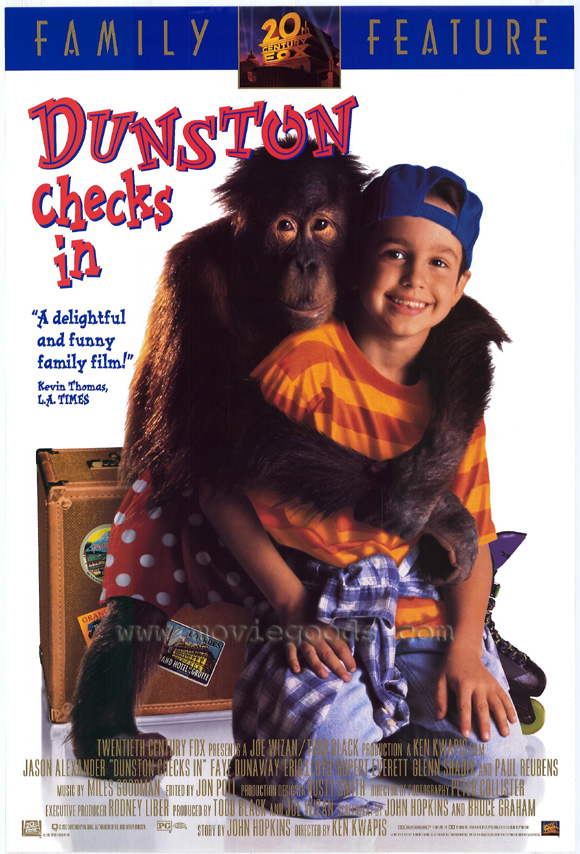Apes Used In Entertainment
Great apes are sentient animals who have the same emotions (positive and negative) as humans - compassion, affection, jealousy, anger, generosity, embarrassment, sense of humor, joy, homesickness, and sadness. In all the animal kingdom, they are the closest to man in behavior and intelligence, but they are not pseudo-humans or clowns for our pleasure.
In spite of the public's increased sensitivity and awareness of animal protection issues, chimpanzees and orangutans are still used today to perform in live stage shows at tourist attractions, television productions, movies, circuses, print ads, studio work for commercials, mall openings, casino appearances, state fairs, and late night talk shows.
The truth is that great apes used in these situations are only babies or juveniles. Infant apes are used because adolescent and adult orangutans and chimpanzees are too strong and unmanageable, and therefore too dangerous to work around the public or around actors on sets.
At this very young age, chimpanzees and orangutans can be cute, endearing, sometimes funny, and the public loves them. They star in award-winning ads. When they appear in these advertisements, they make money for the company selling their product, as well as for the advertising agency, the ad production crew, the trainers, the actors, and everyone connected with the ad... but not for the apes themselves.
Using great apes in advertising and entertainment may be successful for the trainer, the studio, or the advertising agency, but it usually means a life of misery and uncertainty for the apes.
Apes used in the entertainment business are taken away from their mothers when only weeks or months old, to be raised by humans and taught unnatural behaviors and tricks. But, they only have a working "shelf- life" of six to eight years. Since chimpanzees can live in captivity for over 60 years, where do they go after their working career is over at age eight, and still a juvenile?
The sad fact is that for decades these famous simian actors who made us laugh have ended up as experimental subjects in biomedical research... or in deplorable and shabby roadside zoos... or in tiny backyard cages... or in breeder compounds where their own babies were pulled from them to repeat the whole process of working young apes for entertainment.
Today more ex-entertainment apes are finding their way into legitimate sanctuaries where they can live with their own species in enriched environments with good nutrition and without exploitation. But the nine or ten great ape sanctuaries in North America are all currently at or over capacity. And, since the trainers and owners of these apes rarely (if ever) provide any funding to the sanctuaries to take their apes off their hands, the sanctuaries take the entire responsibility of providing the financial care for these former entertainers for the next 50 years after their retirement from show business.

In an age where processes like animatronics and digital animation allows filmmakers and TV producers to create animal likenesses on computers... and where computer animated movies like "Happy Feet" and "King Kong" were box office successes, there is no need to ruin the lives of chimpanzees and orangutans for their entertainment value.
Sanctuaries work to protect these orangutans and chimpanzees and provide a future for them. But the next and most important need is for the public - i.e. you - to object to the use of apes in entertainment and to let the "users" (movie producers, ad agencies, TV studios) know that this is no longer acceptable to an enlightened generation!
The Information on this page is by the Center For Great Apes. Their mission is to provide a permanent sanctuary for orangutans and chimpanzees who have been rescued or retired from the entertainment industry, from research, or who are no longer wanted as pets. The Center provides care with dignity in a safe, healthy, and enriching environment for great apes in need of lifetime care.
To learn more about this amazing sanctuary, please visit their website: www.CenterForGreatApes.org
